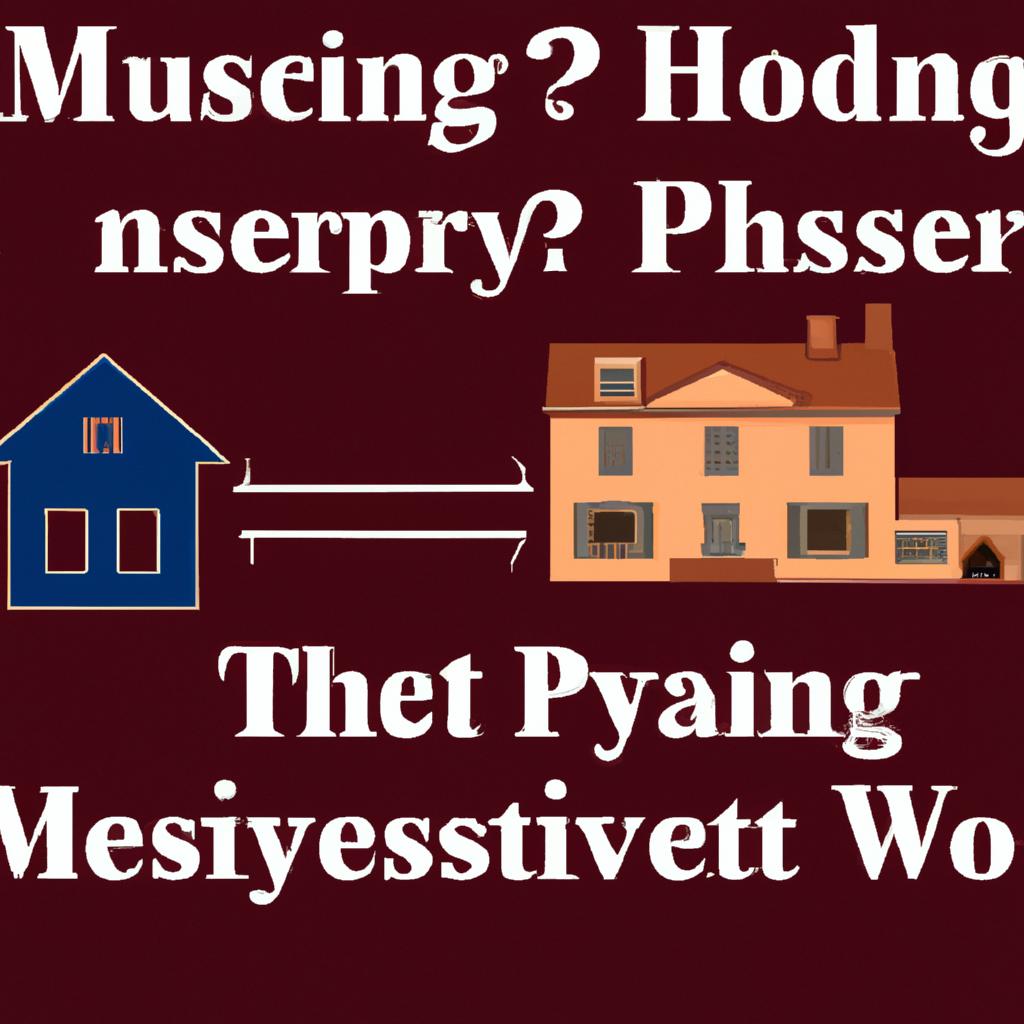Probate, a term often misunderstood and complex, is a vital part of the legal procedure for transferring a deceased person’s assets, including their cherished home. Grasping the concept of probate on a house is crucial for homeowners and their families, as it can significantly influence the allocation of assets and the overall estate settlement process. Let’s demystify the intricacies of probate and delve into its implications for homeowners navigating the complex realm of estate planning and inheritance.
Decoding Probate on a House
Probate on a house is the legal procedure that occurs after the homeowner’s death, where the property’s ownership is transferred to the heirs or beneficiaries. This process ensures that the deceased’s assets are distributed according to their will or state laws. Here are some key points to help you comprehend probate on a house:
- Court Oversight: Probate is a court-monitored process that involves authenticating the deceased’s will, settling debts and taxes, and distributing the remaining assets to the rightful heirs.
- Executor: The executor of the estate is typically named in the will and is tasked with managing the probate process. They must ensure that all debts are paid and the property is distributed according to the deceased’s wishes.
- Duration: Probate can be a protracted process, often taking several months or even years to finalize. During this period, the property may be tied up, making it unavailable for sale or transfer.
| Advantages | Disadvantages |
|---|---|
| Ensures correct transfer of property | Can be lengthy and expensive |
| Settles debts and taxes | May delay the allocation of assets |
Steering Through the Probate Process for Real Estate
When a loved one passes away, their estate typically undergoes a legal process known as probate. This process involves identifying and gathering assets, settling debts and taxes, and distributing the remaining assets to heirs. When it comes to real estate, probate can be a complex and time-consuming process.
During probate, the court will need to ascertain the property’s value, settle any outstanding debts or taxes associated with the property, and ultimately transfer ownership to the rightful heirs. This process can involve several steps, including:
- Identifying and appraising the property
- Notifying creditors and potential heirs
- Resolving any disputes or claims against the estate
- Transferring ownership of the property to the heirs
Having a solid understanding of the probate process when it comes to real estate is crucial, as it can help ensure a smooth and efficient transfer of ownership. Collaborating with a knowledgeable estate attorney can also be incredibly beneficial in navigating the complexities of probate and ensuring that everything is handled correctly.
Obstacles and Factors in Probate Real Estate
Probate real estate can pose various challenges and considerations for both buyers and sellers. One of the primary obstacles is the lengthy and complex legal process involved in probate sales. This can lead to transaction delays and added stress for all parties involved.
Another factor to consider is the potential for disputes among heirs or beneficiaries over the property’s distribution. This can further complicate the probate process and may require legal intervention to resolve.
Furthermore, probate properties are often sold in “as is” condition, meaning that the seller is not required to make any repairs or improvements to the property. This can be a risk for buyers, as they may inherit costly repairs or issues after purchasing the property.
Navigating the probate real estate market requires patience, understanding, and a willingness to overcome potential obstacles along the way.
Insider Tips for Handling Probate Properties
When dealing with probate properties, it’s important to understand the unique challenges and opportunities that come with this type of real estate transaction. Here are some expert tips to help you navigate the probate process:
- Conduct Thorough Research: Before making any decisions, research the property’s history, outstanding debts, and any legal issues that may arise during the probate process.
- Engage a Probate Real Estate Specialist: Consider hiring a real estate agent or attorney who specializes in probate properties to guide you through the process and ensure everything is handled correctly.
- Exercise Patience: Probate properties can take longer to sell than traditional properties, so be prepared for delays and unexpected hurdles along the way.
By following these insider tips and staying informed throughout the probate process, you can successfully navigate the complexities of dealing with probate properties and make the most of this unique real estate opportunity.
Concluding Thoughts
Probate on a house can be a complex and often bewildering process. It involves verifying the validity of a will, settling debts, and distributing assets to beneficiaries. Understanding the probate process is crucial for anyone dealing with the sale or inheritance of a property. By understanding the basics of probate, individuals can navigate this legal procedure more effectively and ensure a smoother transfer of property ownership. We hope this article has illuminated the intricacies of probate and how it may impact the transfer of a house. Thank you for reading!

What is Probate?
Probate is the legal process through which a deceased person’s assets, including their house, are distributed to beneficiaries or heirs according to their will or state laws. When a homeowner passes away, their property becomes part of their estate, and probate is required to transfer ownership to the rightful recipients.
The Probate Process
The probate process involves several steps, including:
- Filing a petition with the court to open probate
- Notifying heirs, creditors, and other interested parties
- Inventorying and appraising the deceased person’s assets, including the house
- Paying off debts and taxes owed by the estate
- Distributing the remaining assets, including the house, to beneficiaries or heirs
Implications of Probate on a House
When a house goes through probate, it may face several implications:
- Delays: Probate can be a lengthy process, delaying the transfer of ownership to the beneficiaries.
- Costs: Probate involves court fees, attorney fees, and other expenses, which can reduce the value of the house.
- Publicity: Probate proceedings are a matter of public record, which may invade the privacy of the deceased person’s family.
Navigating Through Probate Effectively
To navigate through probate effectively and minimize its impact on a house, consider the following tips:
- Create a will: Having a clear and updated will can simplify the probate process and ensure that your house is distributed according to your wishes.
- Consider alternatives: Explore options such as revocable living trusts or joint tenancy to avoid probate and streamline the transfer of your house to your heirs.
- Seek professional help: Consult with an estate planning attorney to understand the probate process, explore your options, and establish a plan that best suits your needs.
Benefits of Avoiding Probate
Avoiding probate can offer several benefits, including:
- Time savings: By bypassing probate, the transfer of your house to your heirs can occur more quickly and efficiently.
- Cost savings: Avoiding probate can reduce legal fees, court costs, and other expenses associated with the probate process.
- Privacy: Keeping your estate out of probate can maintain the privacy of your affairs and avoid public scrutiny.
Case Study: The Smith Family
The Smith family recently experienced the probate process after the passing of Mrs. Smith. Her house, located in a desirable neighborhood, was tied up in probate for several months, causing delays and additional expenses for the family. Eventually, the house was transferred to the beneficiaries as specified in Mrs. Smith’s will, but the experience left the family frustrated with the probate process.
First-Hand Experience: Avoiding Probate
Mr. Johnson, a retiree, decided to avoid probate by setting up a revocable living trust for his house. When he passed away, his house was swiftly transferred to his children without the need for probate. The family saved time and money, ensuring a seamless transfer of the property.
| Aspect | Probate | Avoiding Probate |
|---|---|---|
| Time | Lengthy process | Quick transfer |
| Cost | Legal fees, court costs | Reduced expenses |
| Privacy | Public record | Private transfer |
Understanding the implications of probate on a house is crucial for homeowners looking to secure their property for their loved ones. By taking proactive steps to plan for the future, such as creating a will or setting up a trust, individuals can navigate through the probate process effectively and ensure a smooth transfer of their house after their passing.


